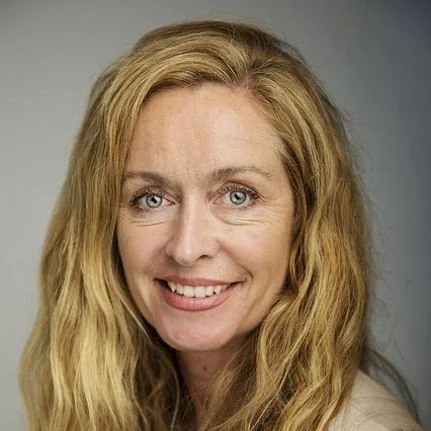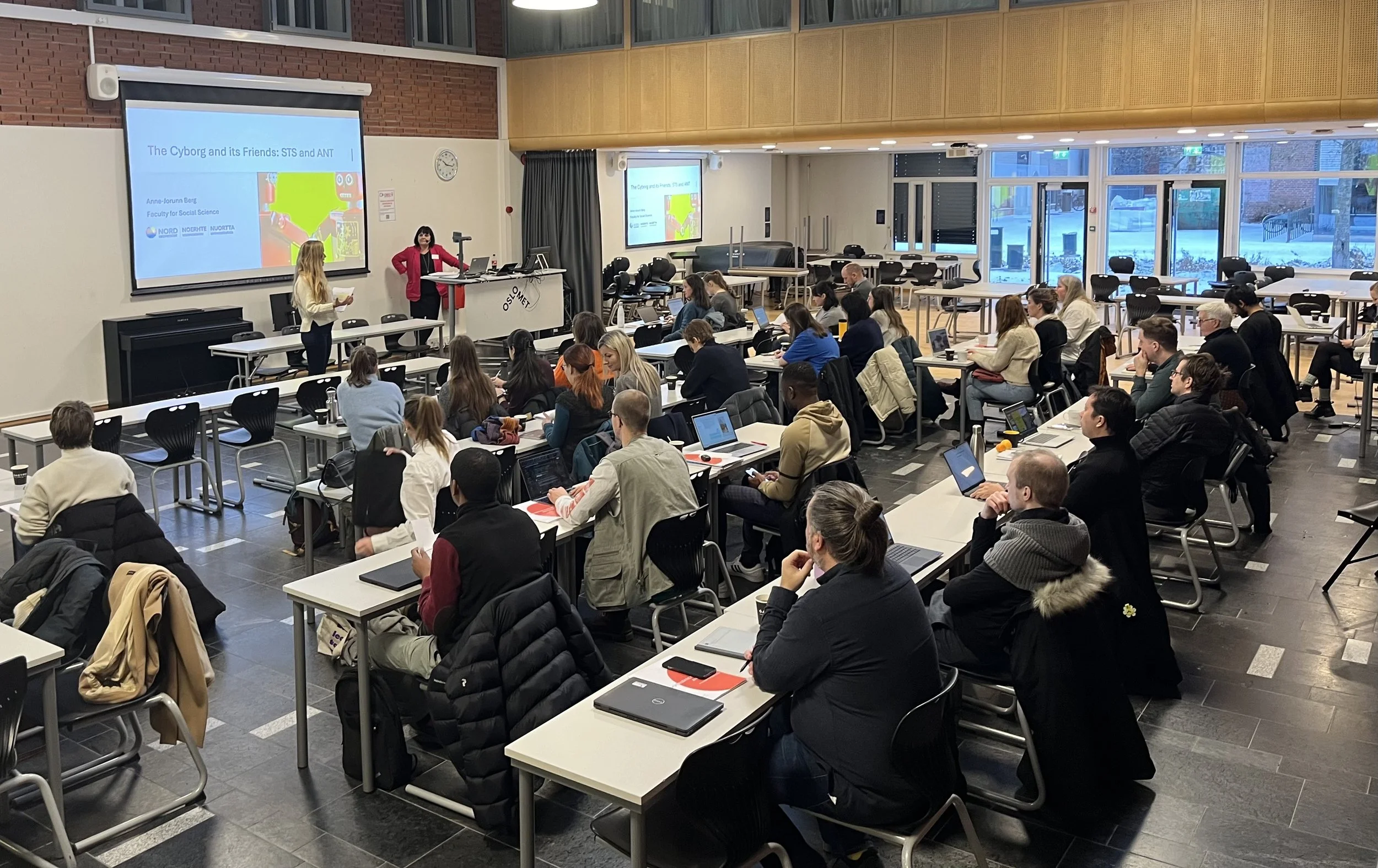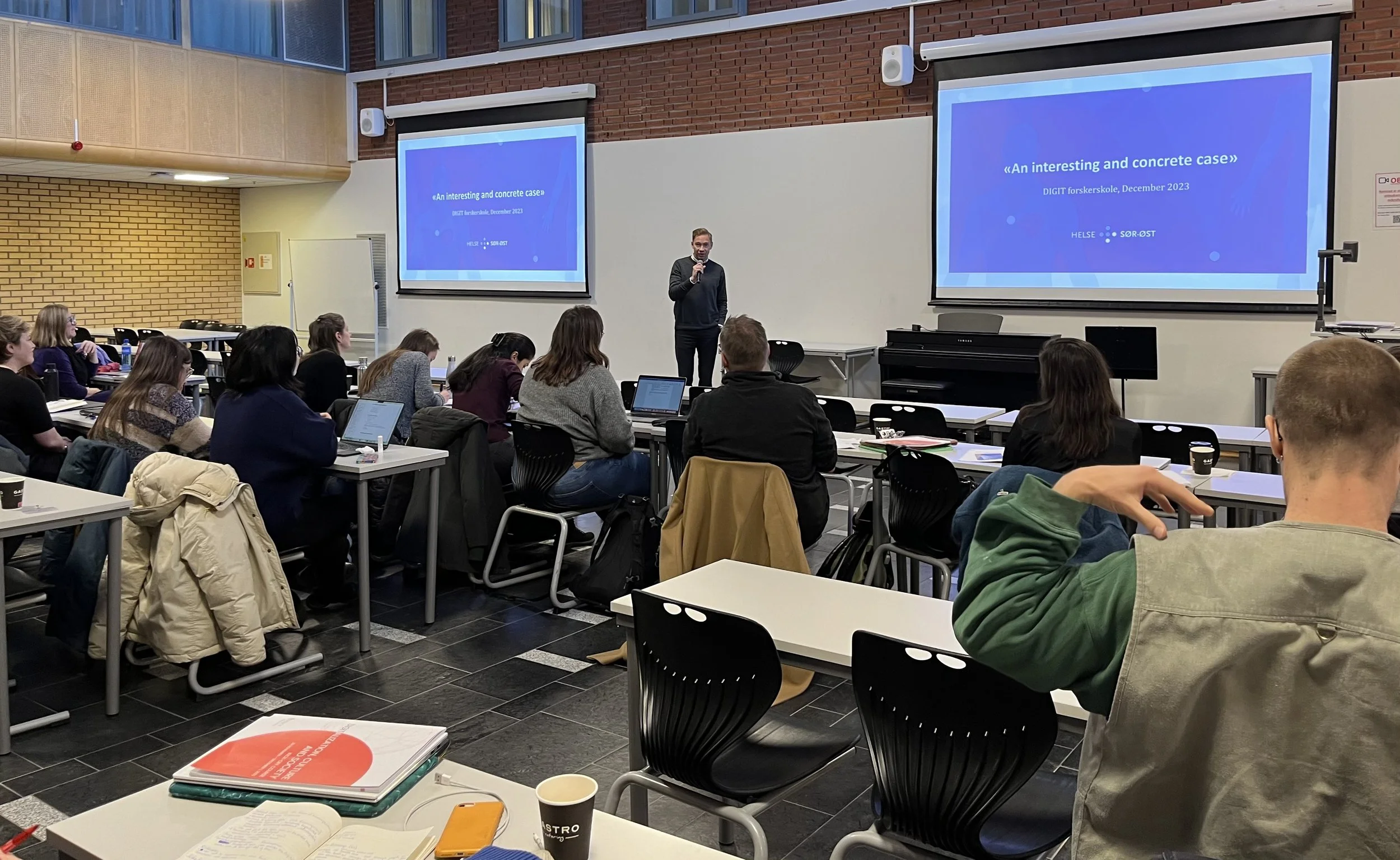DIGIT kick-off course on Digitalization, Culture and Society
Welcome to DIGIT's kick-off course on Digitalization, Culture, and Society from November 26 - 29 at OsloMet!
DIGIT kick-off course: Digitalization, Culture and Society
When: November 26 - 29, 2024
Where: OsloMet, Pilestredet 42, Oslo
Language: English
Attendance at the DIGIT Kick-off course is mandatory for new members (class of 2024-2026)
Registration: https://nettskjema.no/a/440330
Content
Each new DIGIT class begins with Kick-off course on Digitalization, Culture, and Society. Spanning four days, this course serves as an orientation for the incoming participants of the research school, allowing them to familiarize themselves with both their peers and the DIGIT partners.
The course features lectures by academic partners, along with contributions from representatives from both the public and private sectors. Group discussions and presentations are also key elements of the course.
Download the courrse catalogue with a detailed program and information about the the contributors and members of this year’s cohort here: PDF.
Tuesday 26 November, 2024
introduction
Q1015, Mosse Jørgensens klasserom, Pilestredet 42 -Anna Sethnes hus, OsloMet
09:30 – 09:45 Welcome and introduction to DIGIT research school by Professor Marit Haldar and Tina Svingerud
09:45 – 10:30 What is machine culture? AI's impact on culture and society by Professor Petter Brandtzæg, UiO
10:30 – 10:45 Break
10:45 – 11:45 Presentation of PhD and postdoctoral projects in groups
11:45 - 12:45 Lunch (included)
12:45 – 13:45 Digitalization – how to understand and use it as concept(s) in your research project by Professor
Roger Søraa, NTNU
13:45 - 14:15 Group discussion: Digitalization - how to understand and use it as concept(s) in your research project by Professor Roger Søraa, NTNU
14:15 – 14:30 Break
14:30 – 15:00 Organized labor and digitalization by Special adviser Arvid Ellingsen, the Norwegian Confederation of Trade Unions (LO)
15:00 – 16:00 Roundtable discussion on today’s topics
Wednesday 27 November, 2024
theory
Q1015, Mosse Jørgensens klasserom, Pilestredet 42 -Anna Sethnes hus, OsloMet
09:00 – 9:40 Welcome and introduction to a sociotechnical understanding of technology by Professor Heidrun Åm, NTNU
09:40 – 10:00 How script analysis helped us shed light on the relationship between loneliness and digital communication by Professor Marit Haldar, OsloMet
10:00 – 10:15 Break
10:15 – 10:55 Domestication theory as a useful analytical lens for studying the use of digital technologies in practice by Professor Roger Søraa, NTNU
10:55 - 11:00 Short break
11:00 – 11:40 Introduction to sociotechnical imaginaries and the sociology of expectations by Professor Kjetil Rommetveit, UiB
11:40 - 12:00 Tracing big data and AI imaginaries by Dr. Gernot Rieder, UiB
12:00 – 13:00 Lunch (included)
13:00 – 13:30 The assemblage concept and how it helped me analyze the datafication of Swedish public care by Dr. Petter Falk, University of Karlstad
13:30 – 14:45 Reflection exercise and group work – what happens if I look at my own research through these concepts?
14:45 – 15:00 Break
15:00 – 16:00 Presentation of PhD and postdoctoral projects in groups
16:45 – Dinner at Klosteret, Fredensborgveien 13, Oslo
Thursday 28 November, 2024
excursion and methods
Norwegian Museum of Science and Technology, Kjelsåsveien 143, 0491 Oslo
Q1015, Mosse Jørgensens klasserom, Pilestredet 42 - Anna Sethnes hus, OsloMet
08:45 We meet at The Norwegian Museum of Science and Technology, Kjelsåsveien 143, 0491 Oslo
09:00 – 10:00 Guided tour at the museum – I/0 - The telecommunications and data exhibition.
10:25 Departure of bus 25 from Kjelsås station
11:15 – 12:00 Presentation of PhD and postdoctoral projects in groups
12:00 – 13:00 Lunch (included)
13:00 – 13:45 Practice-oriented digital document analysis part I by Professor Kristin Asdal, UiO
13:45 – 14:00 Break
14:00 – 14:45 Practice-oriented digital document analysis part II by Professor Kristin Asdal, UiO
14:45 – 15:00 Break
15:00 – 16:00 Roundtable discussion on today’s topics
Friday 29 November, 2024
work life
FG014, Falbesgate 5, OsloMet, Campus Pilestredet
09:00 – 09:30 Radical innovation in municipalities by Chief adviser Henrik Dons Finsrud, The Norwegian Association of Local and Regional Authorities (KS)
09:30 – 09:45 Break
09:45 - 14:30 Scenario workshop by Professor Alexander Ruser, UiA
We will explore and envision future scenarios and solutions to challenges identified by a non-
academic partner.
14:30 – 15:00 Concluding comments and evaluation of the week
Travel and accommodation
For DIGIT participants residing outside Oslo, we will cover travel expenses. You are responsible for booking your own flight/train tickets in accordance with your university's guidelines and the Personnel Handbook for State Employees. DIGIT covers travel expenses up to a maximum of 2500 NOK in total. DIGIT can also cover hotel costs.
Course assignment (optional)
To receive a course diploma, participants are required to attend a minimu of 80% of the course and complete a 750-word popular science text about their doctoral project/research project. A self-selected reading list totaling 500 pages also needs to be included. Additionally, all students will deliver a short presentation of their research in groups of 6-7 individuals over the course of the four days.
Participants will receive feedback on their written assignments from a member of DIGIT faculty, a communication advisor, and a representative from a non-academic DIGIT partner.
Note on the popular science text: DIGIT is a research school of quality and relevance, and one of our goals is to improve collaboration between academia and other social actors through researcher training. To link the research to the broader society and demonstrate its relevance to the non-academic sector is thus one of the key pillars of our programme.
Diploma
Successful completion of the course assignment and the group presentation, along with a minimum of 80% attendance, will earn participants a diploma specifying the total workload:
Participation in 4 full course days
Delivery of a group presentation on their own research project
Submission of a final assignment comprising 750 words
Self-selected reading list totaling 500 pages.
Participants can utilize this diploma to apply for credit approval at their respective institutions. The diploma will recommend 3 ECTS. It is important to note that the participant's institution will determine if and how many credits awarded.
Course leader - Marit Haldar
Marit Haldar is a professor of sociology at OsloMet and the director of the DIGIT research school and the Center for Digitalization of Public Services and Citizenship (CEDIC).
Throughout her research-career she has been concerned with ideology and cultural analysis of childhood, old age, gender, family and (social) technology. She has also studied marginalized subjects in the welfare state and inequalities in treatment in the health care system from an ideological perspective.
Feel free to contact the DIGIT coordinator should you have any practical questions.










